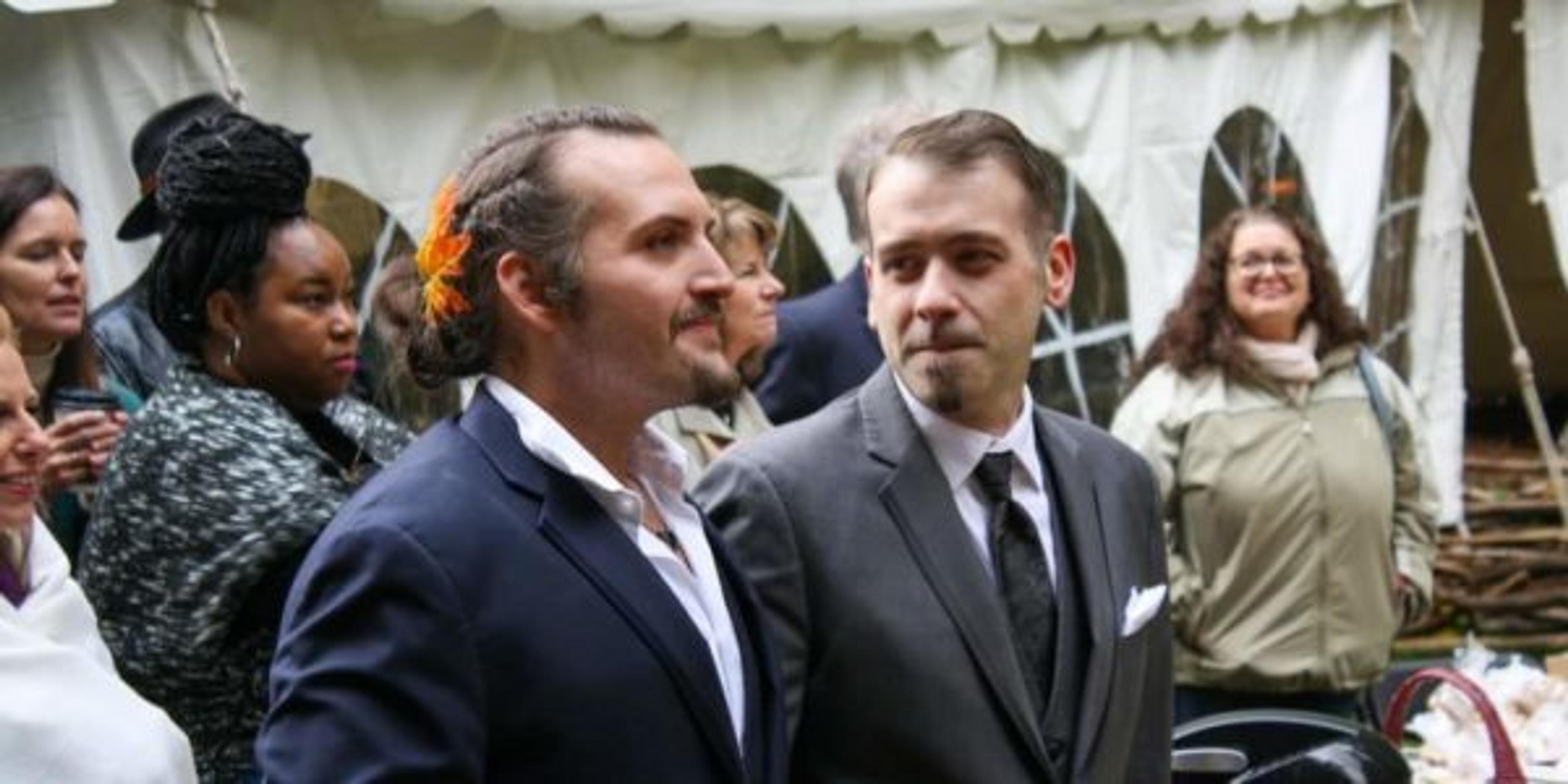Youth Suicide Rates In LGBTQ+ Community Decrease Since Legalization of Gay Marriage

Monica Drake
| 4 min read

High school students who identify as LGBTQ+ are more than four times as likely to have attempted suicide than their heterosexual peers, according to the National Alliance on Mental Illness. And it broke my heart when my friend Zac Gallant told me that he’s part of this statistic.
“I’ll be honest, I was one of those kids. I tried to take my own life back in 2008,” he said.
Gallant came out as gay to his parents at age 15 – about a decade before gay marriage was legalized nationally. He didn’t come out to his friends (at least not to me) until after graduation from Notre Dame Prep in Pontiac, where we both attended high school.
He told me, when he first spoke his truth, “It was made very clear to me that gay people didn’t get love; they didn’t get the happy ending. I absolutely never thought that gay marriage was a possibility, let alone getting married myself.”
“As a gay teenager, you’re constantly barraged by a self-realization that something isn’t the same between you and your classmates, and many of those classmates are only too willing to point that out, too. School can be a cruel place for gay teens.”
One of my favorite books, Simon vs. the Homo Sapiens Agenda by Becky Albertalli, poses the question: Why is straight the default? “Everyone should have to declare one way or another, and it shouldn’t be this big awkward thing whether you’re straight, gay, bi, or whatever,” she writes.
Gallant also wishes things were different, and he said, “Heterosexuality is, let’s face it, recognized as the sociological ‘norm’ and has been for a very long time. There’s an inherent societal acceptance, even among unpopular heterosexual teens. At the very least, they could be viewed as a ‘normal, straight teen.’”
So, it’s no wonder that this constant feeling of not being accepted and being different causes LGBTQ+ youth to be more susceptible to depression. BUT, there is some good news. In the years since gay marriage was legalized in all 50 states, there’s been a dramatic drop in suicide rates. In fact, according to a study published in the June 2021 edition of the Journal of Adolescent Health, youth suicide rates dropped 17% since the legalization of same-sex marriage.
Gallant said he believes this decrease is because the legalization of gay marriage gave him and others hope.
“Legalization of gay marriage made me feel like more of a person and less of some kind of ostracized biological anomaly,” he said.
When it was announced that he had the right to do something that so many of us take for granted, he said, “I cried like a baby. It meant so much to know that if my partner was sick, I would finally be guaranteed the ability to see him in the hospital. Our love would legally be recognized for the huge commitment it truly is.”
And, on Oct. 12, 2019, a dream he once thought was impossible came true. He got married to Tim, the love of his life.
“I am just about the happiest married man you’ll find in this wide world,” he said. “The biggest thing, for me, was seeing my family there, after everything we had been through, supporting the biggest decision of my life.”
Gallant gives this advice to any LGBTQ+ youth who’s depressed or contemplating suicide, as he once was:
“Listen up, queen, because here’s the deal: You are a unique and special individual, and you are a valuable member of this world,” he said.
“I’m not going to feed you a line about it magically getting better. Sometimes, the world is going to throw you curveball after curveball and follow it up by spitting in your eye. What I WILL tell you is that the best way to move forward is to be happy. Hold out for your happy ending. Don’t let this world win.”
If you or someone you know is considering suicide, the National Suicide Prevention Lifeline is available 24/7 by calling 800-273-8255 or visiting suicidepreventionlifeline.org/chat to chat online. To check out the mental health resources available to you through your Blue Cross or Blue Care Network health care plan, visit bcbsm.com/mentalhealth.
Main photo: Zac Gallant shared this photo from his wedding in Traverse City to his husband Tim Gallant in October 2019. (Courtesy of Amanda Molnar)
Opinions expressed in this blog belong solely to the author and do not necessarily reflect the opinions or beliefs of Blue Cross Blue Shield of Michigan or its subsidiaries and affiliates.
More from AHealthierMichigan.org:





